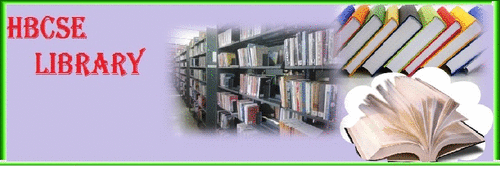Aug 15, 2020
This open access book offers pioneering
insights and practical methods for promoting diversity and inclusion in higher
education classrooms and curricula. It highlights the growing importance of
international education programs in Asia and the value of understanding student
diversity in a changing, evermore interconnected world. The book explores
diversity across physical, psychological and cogitative traits, socio-economic
backgrounds, value systems, traditions and emerging identities, as well as
diverse expectations around teaching, grading, and assessment. Chapters detail
significant trends in active learning pedagogy, writing programs, language
acquisition, and implications for teaching in the liberal arts, adult learners,
girls and women, and Confucian heritage communities. A quality, relevant, 21st
Century education should address multifaceted and intersecting forms of
diversity to equip students for deep life-long learning inside and outside the
classroom. This timely volume provides a unique toolkit for educators,
policy-makers, and professional development experts.
This book offers a comprehensive guide,
covering every important aspect of computational thinking education. It
provides an in-depth discussion of computational thinking, including the notion
of perceiving computational thinking practices as ways of mapping models from
the abstraction of data and process structures to natural phenomena. Further,
it explores how computational thinking education is implemented in different
regions, and how computational thinking is being integrated into subject
learning in K-12 education. In closing, it discusses computational thinking
from the perspective of STEM education, the use of video games to teach
computational thinking, and how computational thinking is helping to transform
the quality of the workforce in the textile and apparel industry.
This book provides a practical
philosophy for promoting students' sophisticated thinking from Early Childhood
to PhD in ways that explicitly interconnect across the years of education. It
will help teachers, academics and the broader learning and teaching community
to understand and implement these connections by introducing a conceptual
framework, the Models of Engaged Learning and Teaching (MELT). By covering the
nature, philosophy, practice and implications of MELT for teachers and students
alike, the book will help teachers to facilitate students’ awareness of, and
increasing responsibility for, the thinking demanded by subject and
discipline-specific learning as well as interdisciplinary learning, whether
face to face, online or in blended modes. The book will also provide educators
with ways to effectively engage with complex, and sometimes conflicting,
contemporary educational concepts, and with a diverse variety of colleagues
involved in the learning and teaching enterprise. The book provides guidance that allows curriculum improvement, teacher action research and larger-scale research to be reported on from a common perspective, bridging the gap between those readers focused on research and those focused on teaching. The book shares valuable insights and ways of addressing the contemporary issue of discipline-based learning versus transdisciplinary learning, reducing the dichotomy and enabling the two approaches to complement each other.
This open access book
follows the development of the Building Resilience in Teacher Education (BRiTE)
project across Australia and internationally. Drawing on the success of this
project and the related research collaborations that have since emerged, it
highlights the importance of cultivating resilience at various stages of
teachers’ careers. Divided into three sections,
the book includes conceptual, empirical and applied chapters, designed to
introduce readers to the field of research, provide empirical evidence and
showcase innovative applications. The respective chapters illustrate the ways in
which teacher resilience can be enhanced in a variety of contexts, and address
specific learning activities, case studies, resources and strategies, student
feedback and applied outcomes. They also consider future directions including
cross-cultural applications and the use of technologies such as augmented
reality. The book will appeal to researchers, teacher educators and teachers,
as well as those interested in supporting the cultivation and ongoing
development of professional resilience for pre-service and practicing teachers.
This open access book takes a critical and international perspective to the mainstreaming of the Global Citizenship Concept and analyses the key issues regarding global citizenship education across the world. In that respect, it addresses a pressing need to provide further conceptual input and to open global citizenship agendas to diversity and indigeneity. Social and political changes brought by globalisation, migration and technological advances of the 21st century have generated a rise in the popularity of the utopian and philosophical idea of global citizenship. In response to the challenges of today’s globalised and interconnected world, such as inequality, human rights violations and poverty, global citizenship education has been invoked as a means of preparing youth for an inclusive and sustainable world. In recent years, the development of global citizenship education and the building of students’ global citizenship competencies have become a focal point in global agendas for education, international educational assessments and international organisations. However, the concept of global citizenship education still remains highly contested and subject to multiple interpretations, and its operationalisation in national educational policies proves to be challenging. This volume aims to contribute to the debate, question the relevancy of global citizenship education’s policy objectives and to enhance understanding of local perspectives, ideologies, conceptions and issues related to citizenship education on a local, national and global level. To this end, the book provides a comprehensive and geographically based overview of the challenges citizenship education faces in a rapidly changing global world through the lens of diversity and inclusiveness.

